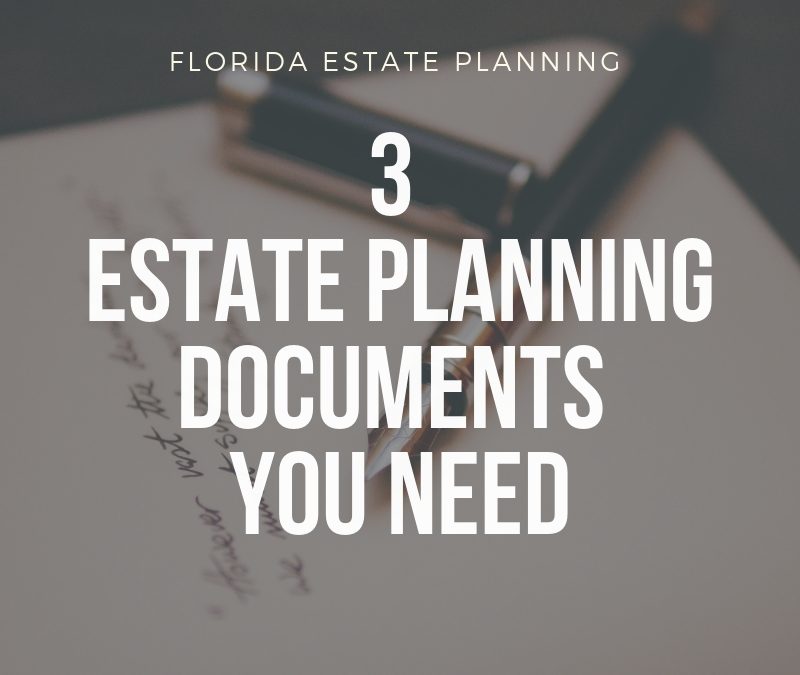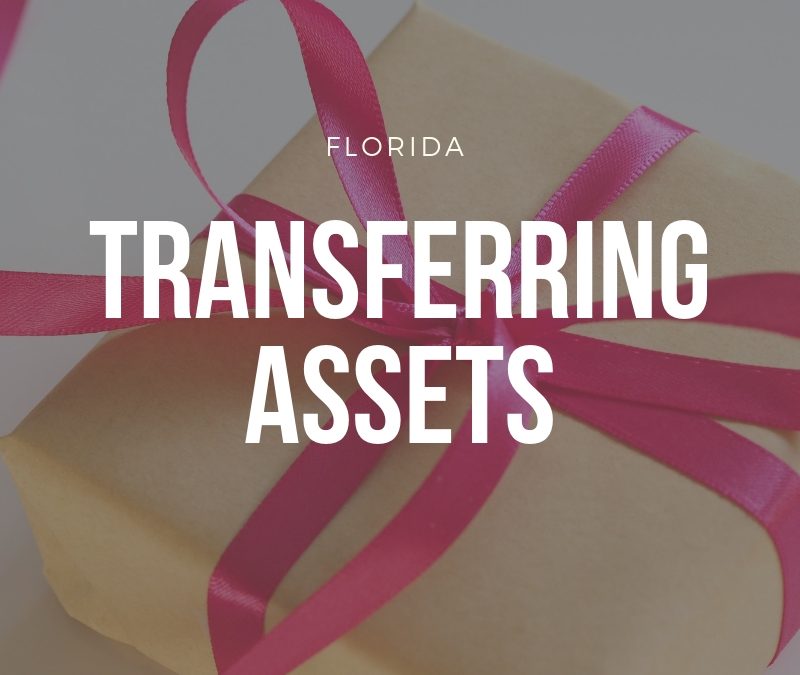You have worked hard to accumulate the assets you own and if you are like most people, you want to leave behind as much of those assets to your loved ones as possible. But, how you choose to transfer those assets to your loved ones can have a huge effect on how much they ultimately receive.
There are various ways to transfer assets to your loved ones. But, essentially, they all boil down to either transferring the assets before you die or transferring them after you die.
Transferring Assets Before You Die In Florida
There are essentially two ways to transfer assets to your loved ones before you die in Florida:
- Gifts; and
- Living Trusts
Gifts – A gift can be given unconditionally to the intended beneficiary. Once the asset has been given away, you will no longer retain title to the asset and the recipient becomes the owner. Gifting can be used by individuals with large estates to avoid the federal estate tax consequences associated with the transfer of wealth from one person to another.
Living Trusts – A living trust may be set up during your lifetime to take ownership of your assets and then distribute them to certain beneficiaries. Apart from facilitating a transfer of assets from you to your heirs, a living trust may also be set up for a variety of other reasons, for example:
- To control and protect family assets from creditors; or
- To have assets managed for beneficiaries who are too young, incapacitated, or otherwise incapable of handling their own affairs.
After you set up a living trust, you will need to transfer assets to the trust. The trust assets will then be managed by someone you nominate as trustee and distributed to the trust beneficiaries according to your specific instructions, for example with regard to how frequently the assets and the income derived from assets are to be distributed.
Transferring Assets After You Die In Florida
There are also essentially two ways to transfer your assets to your loved ones after you die:
- Through the probate process; or
- By using trust substitutes
Transferring assets through the probate process – This involves the use of either state intestacy laws or a Will, both of which will require your estate to be probated. But, probate can be long, costly and confusing. This is why so many individuals put measures in place to avoid probate and save their families the trouble.
Transferring asset using trust substitutes – The use of estate planning tools, such as rules of survivorship, Pay-On-Death or Transfer-On-Death designations, and government savings bonds, as well as, insurance policies and retirement accounts can be very effective ways of transferring assets to loved ones after you die while having those assets avoid probate.
How Should I Transfer Assets To My Loved Ones?
When determining the best way to transfer assets to your loved ones, you should consider the following questions:
- Who and what matters to you? Do you have children, aged parents, grandchildren, or other family members who depend on you? Is there a cause or organization that matters to you a great deal?
- How long will the assets be needed to sustain your loved ones? If you have minors who are dependent on you, what are their ages and needs? Who will you entrust their care to?
- Do you have any liabilities? What happens if you don’t have sufficient funds to pay your liabilities in the event of your premature death? Will your assets need to be liquidated to pay your debts? How can you ensure that your liabilities don’t become a financial burden for your beneficiaries?
- What guarantees do you have? How can you ensure that your assets will be distributed to your loved ones according to your wishes?
- What are your options? What are the various options you have to transfer your assets to your beneficiaries in the most efficient and effective manner in terms of time and money?
Planning for the transference of assets to those you will leave behind when you die is an essential aspect of estate planning. To understand the advantages and disadvantages of the various ways you can transfer assets to your to your loved ones and how each will affect the ultimate value of the estate you leave behind, consult with an experienced Florida estate planning attorney.
Contact Lynchard & Seely, PLLC:
Florida Estate Planning Attorneys
For assistance with this and other estate planning matters in Florida, contact Lynchard & Seely, PLLC, either online or by calling 1-850-936-9385, to arrange a consultation with an experienced Florida estate planning attorney who can explain your options and guide you through the process.
Want Help With Your Estate Plan?
Click Below to Schedule a FREE Initial Consultation!
Lynchard & Seely – COVID-19 Update
We want to update you on the steps we are taking to ensure we can continue to meet your legal needs in a secure and reliable manner. This year marks our firm’s 20th year in Navarre, and our team remains fully operational and here to support you and our community...

3 Florida Estate Planning Documents You Need Right Now
Three, fairly simple Florida estate planning documents is all you need. While, other things can help more, these will get you by in a pinch.

Estate Planning For Small Business Owners
Estate Planning for Small Business Owners – You have to think about more when estate planning if you have a business.
Want Help With Your Estate Plan?
Click Below to Schedule a FREE Initial Consultation!

